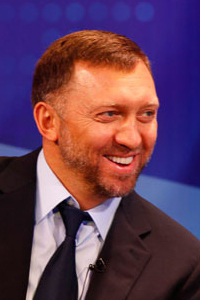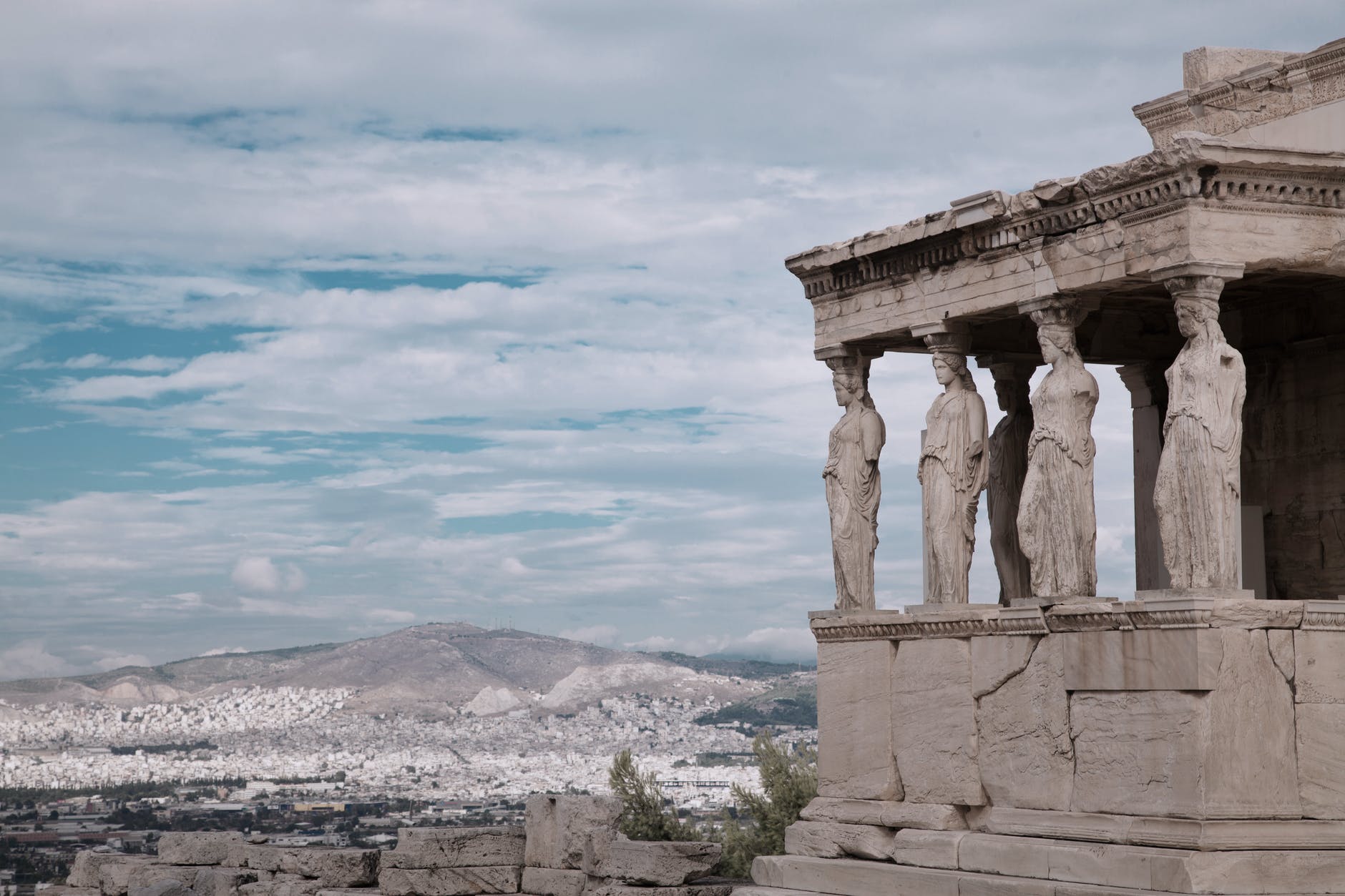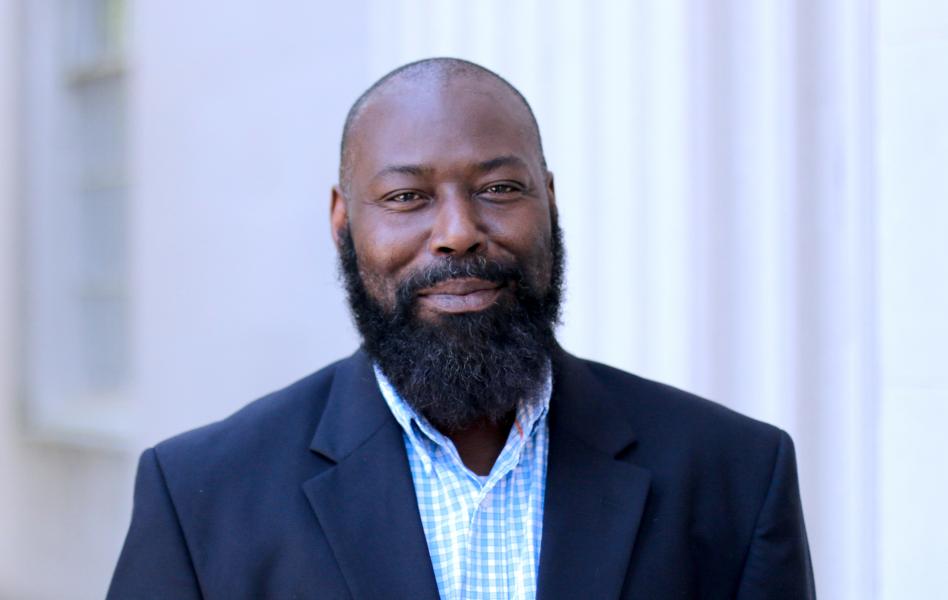Would you like to know why U.S. sanctions against companies owned by Russian billionaire and businessman Oleg Deripaska are being lifted?
You are the reason.
Me too.
And so is everybody else who lives and votes in North Carolina.
Last April, the Treasury Department imposed sanctions against Deripaska and three of his companies for interfering in U.S. elections and for “money laundering, extortion and ordering the murder of a businessman.”

Oleg Deripaska
Deripaska is a friend and ally of Vladimir Putin and connected to former Trump campaign manager Paul Manafort. Shortly after Trump’s nomination, Manafort offered to give him private election briefings.
Last month the Treasury decided to remove sanctions on the three Deripaska companies, explaining that corporate arrangements would restrict Deripaska’s control. Congress can reverse the removal of sanctions.
The House, with 136 Republican members joining the Democrats, voted to reverse the Treasury’s action. But in the Senate the reversal got only 57 votes of 60 needed.
According to Benjamin Parker, writing in The Bulwark, several Republican senators voted to reverse because they did not believe these corporate arrangements would prevent Deripaska from influencing his companies’ actions. Senator Susan Collins: “He still would maintain significant control given his ties to Putin.”
Senator Josh Hawley: “I think he’s a bad a guy and he’s still in working control.”
Senator Marco Rubio “I still think he retains operational control.”
The New York Times journalist Kenneth P. Vogel writes that the corporate arrangements to limit Deripaska’s control of the companies “may have been less punitive than advertised. The deal contains provisions that free him from hundreds of millions of dollars in debt while leaving him and his allies with majority ownership of his most important company.”
Coincidentally, while Deripaska was in the news, I was reading another version of how business works in Russia as set forth in Bill Browder’s 2015 book, “Red Notice: A True Story of High Finance, Murder, and One Man’s Fight for Justice.”
Browder tells how he made billions of dollars buying undervalued Russian stocks and properties after Communism ended in that country. Then he tells how Putin and his oligarch allies plotted to take it all away from him and his investors.
Browder fought back. In doing so he gained the ire of Putin and became, according to Browder’s book, Putin’s number one enemy. Russia declared Browder and his lawyer, Sergei Magnitsky, to be criminals. Browder fled Russia. Magnitsky stayed and was jailed, tortured, and ultimately beaten to death by Russian prison officers. Browder documents the horrors of Russian business and government practices including corruption, torture, and murder. Those facts played a role in Congress’s 2012 decision to impose sanctions on Russian individuals in a law designated as the Magnitsky Act.
Putin retaliated by terminating the program that allowed Americans to adopt Russian orphaned children.
Relief from the Magnitsky sanctions was one of the objectives of the Russians in their now famous Trump Tower meeting with Paul Manafort and Donald Trump Jr. in July 2016.
Perhaps the conduct of Deripaska was not as bad as those who tortured and killed Magnitsky. But backing away from the sanctioning of his companies sends a wrong signal about the determination of Americans to take strong action when corrupt Russian businesses cheat, steal and murder.
So, why are you, I, and other North Carolinians responsible for the lifting of Deripaska sanctions?
The proponents of the sanctions needed only three more votes to win. Senator Bernie Sanders did not vote, but would have voted for the sanctions. The two other necessary votes were those of our Senators Richard Burr and Thom Tillis. If you and I had let them know how strong we were for maintaining the Deripaska sanctions, I think it would have made a difference.
But we just did not get around to making a call to them.
 D.G. Martin hosts “North Carolina Bookwatch,” Sunday 11:00 am and Tuesday at 5:00 pm on UNC-TV. The program also airs on the North Carolina Channel Tuesday at 8:00 pm and other times.
D.G. Martin hosts “North Carolina Bookwatch,” Sunday 11:00 am and Tuesday at 5:00 pm on UNC-TV. The program also airs on the North Carolina Channel Tuesday at 8:00 pm and other times.
Related Stories
‹
![]()
One on One: When Do We Change Names and History?Last week the Raleigh City Council removed the historic designation of Wakestone, the former home of Josephus Daniels. That action is just one more reminder of North Carolina’s and the nation’s struggle to find agreement on what people should be honored and what versions of history should be taught in our schools. The unanimous action […]
![]()
One on One: Jim Crow Is Still Alive in North CarolinaUnbelievable when you think about it, how North Carolina maintained its segregated and discriminatory racial system for such a long time. The remnants of what is commonly called “Jim Crow” are still with us, a daily reminder of the horrors of the past. A new book, “Jim Crow in North Carolina: The Legislative Program from […]

One on One: Books for Holiday GivingIf you are worried about holiday gifts or selections for your book club’s reading, here are some good North Carolina-connected books to consider. Three beloved North Carolina authors have new books that would be perfect for fiction fans: Allan Gurganus, author of “The Oldest Confederate Widow Tells All,” gives us a crop of his best […]

One on One: Greek and Hebrew Guides to Our Political DifferencesHow can ancient Greek and Hebrew thinking help us understand why our friends who support other political candidates see things so differently from us? Why are we locked into such different positions? It is dangerous for anyone to try to explain why people support opposing political figures or different political parties or programs. We sometimes […]

One on One: North Carolina's GodfatherDoes North Carolina have a godfather? We would not want our godfather to be anything like Mexican Gen. Salvador Cienfuegos Zepeda, who is called “El Padrino,” which means “The Godfather.” Zepeda was arrested last week and charged with helping a drug cartel smuggle thousands of kilograms of cocaine, heroin, methamphetamine and marijuana into the United […]

One on One: President Trump and Nicholas SparksWhat do President Donald Trump and the lead character of Nicholas Sparks’ latest book have in common? Hint: Walter Reed Medical Center. Both the president and Trevor Benson, the fictional main character in Sparks’ “The Return,” received critically important treatment at Walter Reed. Trump got expert medical care for his coronavirus. Benson, a Navy surgeon, […]

One on One: Fighting for AmericaWe both love America? We would fight for our country. And we would fight to keep it the way we love it. And we would fight to make it the way we could love it more. It is just that we love different Americas. Even before the president was struck down by the coronavirus that […]

One on One: Religion, Too Much or Not Enough?Is Joe Biden too Catholic? Or not enough? Has Donald Trump corrupted the leaders of conservative religious groups? Religion is everywhere, even in four important books featured during the next few weeks on North Carolina Bookwatch. In Charlotte doctor and author Kimmery Martin’s “The Antidote for Everything,” the lead character is not deeply religious. However, […]

One on One: Who Wins the Debate About Debates?What is more interesting than the upcoming debates between candidates for major political offices? Of course, it is the debate about the debates. Some friends, well-informed and experienced in political activities, say the importance of such debates is vastly overrated. For instance, one said the recent first debate between North Carolina U.S. Senate candidates Republican Thom […]

One on One: Losing Randall KenanHe had to tell me that my beloved Uncle Remus was not coming back—ever. Randall Kenan was jovial, kind, and wise, not unlike the Uncle Remus he was taking away from me. Kenan, died last week at a much too early 57. Like Uncle Remus, he was an expert on trickster stories, mainly based on […]
›



 D.G. Martin hosts “North Carolina Bookwatch,” Sunday 11:00 am and Tuesday at 5:00 pm on UNC-TV. The program also airs on the North Carolina Channel Tuesday at 8:00 pm and other times.
D.G. Martin hosts “North Carolina Bookwatch,” Sunday 11:00 am and Tuesday at 5:00 pm on UNC-TV. The program also airs on the North Carolina Channel Tuesday at 8:00 pm and other times.







